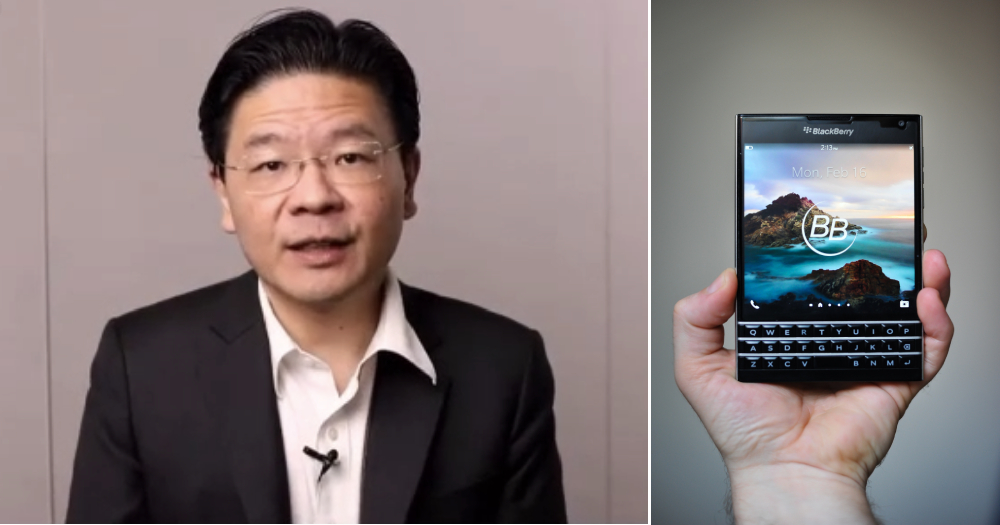Singapore must prepare its people to "continually rethink and relearn" to take on a rapidly changing future, Education Minister Lawrence Wong said on Thursday, Feb. 25.
Rethink, unlearn and relearn
In a pre-recorded speech that was played on the third and last day of the Middle East Institute's annual conference, Wong said that in a turbulent world, the ability "to rethink, to unlearn things that we may already know because the knowledge is outdated, and to relearn" is required.
He further elaborated that this set of cognitive skills requires "agility and nimbleness of mind, as well as the humility to listen to others and to stay open to new ideas, and then continually update our thinking as circumstances change".
Wong added that while rethinking and retooling are skills that needs to be constantly practiced, the irony is that "sometimes the more successful we are, the more difficult it is to change".
Blackberry refused to change and failed to adapt
He raised the example of the mobile phone Blackberry, which was rendered obsolete in the 2000s with the entry of Apple's iPhone and several Android phones into the market.
Wong said the Blackberry was once very popular and accounted for "about half of the U.S. smartphone market" at its peak.
A major innovation for its time with a keyboard that has a "very usable interface", Blackberry developed something that was "convenient and led user needs of that time", he added.
But the company's fortunes started to turn when the first iPhone entered the market in 2007. Wong said:
"The founder of Blackberry didn't want to change and stuck to its original model and it failed to adapt, and we all know what has happened to Blackberry today."
Reiterating the importance of preparing Singapore's youths for future changes, Wong also cited "top jobs" on professional networking platform LinkedIn that "did not exist 10 years ago", like "an iOS or Android developer, a UX designer, Cloud Manager or big data architect". He said:
"Our youths are likely to be doing jobs in the future that don't exist now, and we must prepare them well for such a future."
Important to prepare Singapore's youths to face a rapidly changing future
Wong, who is also the co-chair of the Covid-19 multi-ministry task force, brought up the example of Covid-19 and its impact.
Beyond the immediate economic and societal disruptions, the pandemic has also underscored the importance of education in "preparing our students to face a rapidly changing future", he said.
He added that over the past year of fighting the pandemic, Singapore had to continually update its way of thinking.
While Singapore had experience dealing with SARS some years back, Covid-19 is "a completely new virus", and so what worked well for the country previously was "not so effective for this new virus", he said.
For instance, a person with SARS only became infectious after symptoms like fever had set in, making it easier to detect such an infectious person. But with Covid-19, the virus spreads much faster, well before the onset of symptoms.
Wong further cited the work the government had to do to contain Covid-19, such as overhauling the country's contact tracing system.
These examples, he said, illustrate the importance of "nimbleness and flexibility" to keep updating "our way of thinking with new knowledge and the development of new information.
Train students to "think laterally" and to help them achieve full potential
In addition, to help students prepare for the future, Wong said it is crucial for them to not only "develop deep expertise in their chosen fields", but also the ability to "think laterally" and draw connections across different domains.
This is why the Ministry of Education is encouraging Singapore's institutes of higher learning to make interdisciplinary learning "an integral part of their teaching", he added.
Wong added that more had to be done to help individuals to fulfil their full potential, especially those from disadvantaged backgrounds, who were disproportionately affected by the pandemic. For example, students without a laptop at home had difficulties participating in online Home Based Learning, a disadvantage which the government is rectifying.
He concluded with a reminder that Singapore takes training "very seriously" because people are Singapore's only and "greatest" resource. This is why the education and training ecosystem needs to be constantly reviewed and updated.
Top image adapted via MEI conference & @austriker27/Unsplash
If you like what you read, follow us on Facebook, Instagram, Twitter and Telegram to get the latest updates.

